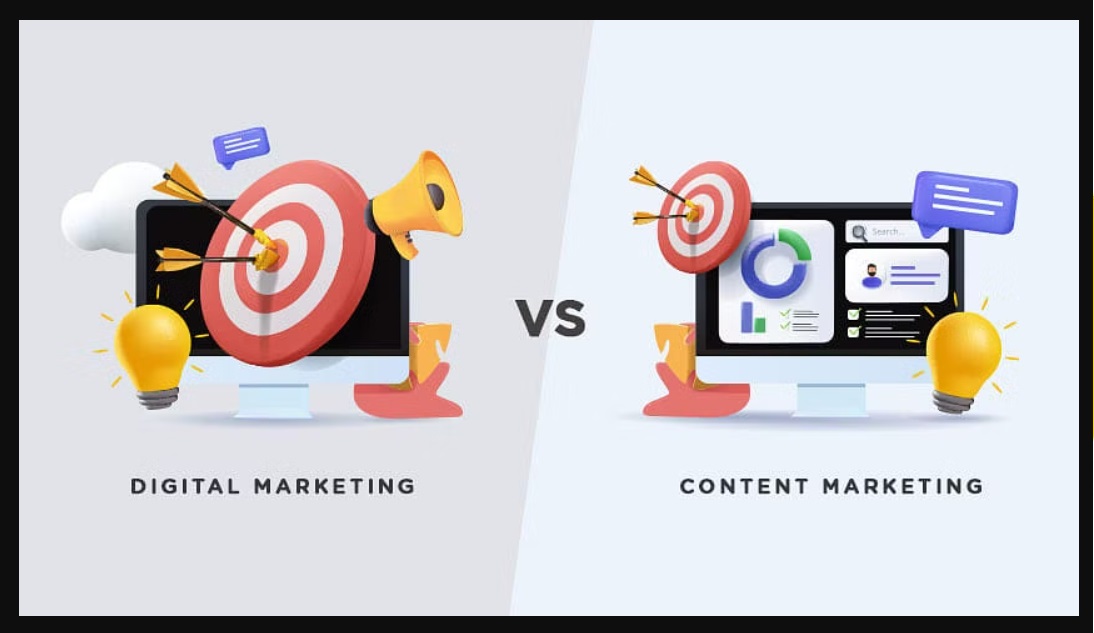
Digital marketing and content marketing are two distinct but interrelated disciplines within the broader field of marketing. While they share some similarities, they have different focuses and strategies. Let’s explore the differences between digital marketing and content marketing:
- Definition:
- Digital marketing: Digital marketing refers to the practice of promoting products or services using digital channels such as search engines, social media, email, websites, mobile apps, and more. It encompasses various tactics, including online advertising, search engine optimization (SEO), social media marketing, email marketing, and more.
- Content marketing: Content marketing is a strategic approach to marketing that involves creating and distributing valuable, relevant, and consistent content to attract and engage a target audience. It focuses on creating and sharing informative, educational, or entertaining content to build brand awareness, establish credibility, and drive customer action.
- Scope:
- Digital marketing: Digital marketing encompasses a broad range of activities beyond content creation. It includes paid advertising, search engine marketing, social media management, email marketing, influencer marketing, affiliate marketing, and other online promotional techniques. It involves leveraging various digital platforms and channels to reach and engage with the target audience.
- Content marketing: Content marketing, on the other hand, revolves around creating and distributing content that is useful, informative, or entertaining to the target audience. It involves creating blog posts, articles, videos, infographics, podcasts, ebooks, and other forms of content to attract, educate, and engage potential customers. Content marketing can be a component of digital marketing but focuses primarily on content creation and distribution.
- Focus:
- Digital marketing: Digital marketing places emphasis on leveraging digital channels and techniques to promote products or services. It involves analyzing data, targeting specific demographics or user segments, optimizing conversion rates, and measuring campaign performance. It often aims to drive immediate action, such as generating leads, making sales, or increasing website traffic.
- Content marketing: Content marketing focuses on creating valuable content that resonates with the target audience. The content is designed to inform, entertain, or solve a problem for the audience, establishing trust and credibility for the brand. Content marketing aims to build long-term relationships with customers, nurturing them through the buyer’s journey and encouraging brand loyalty.
- Relationship:
- Digital marketing and content marketing are closely intertwined. Content marketing is an essential component of digital marketing strategies. High-quality content is crucial for attracting and engaging users through digital channels. Content can be used in search engine optimization, social media marketing, email marketing, and other digital marketing tactics. Content marketing provides the fuel that powers many digital marketing campaigns.
In summary, digital marketing encompasses a broader range of activities, including content marketing, while content marketing focuses specifically on creating and distributing valuable content. Both disciplines are essential for modern marketing strategies, and their effective integration can yield powerful results in reaching and engaging with the target audience.


